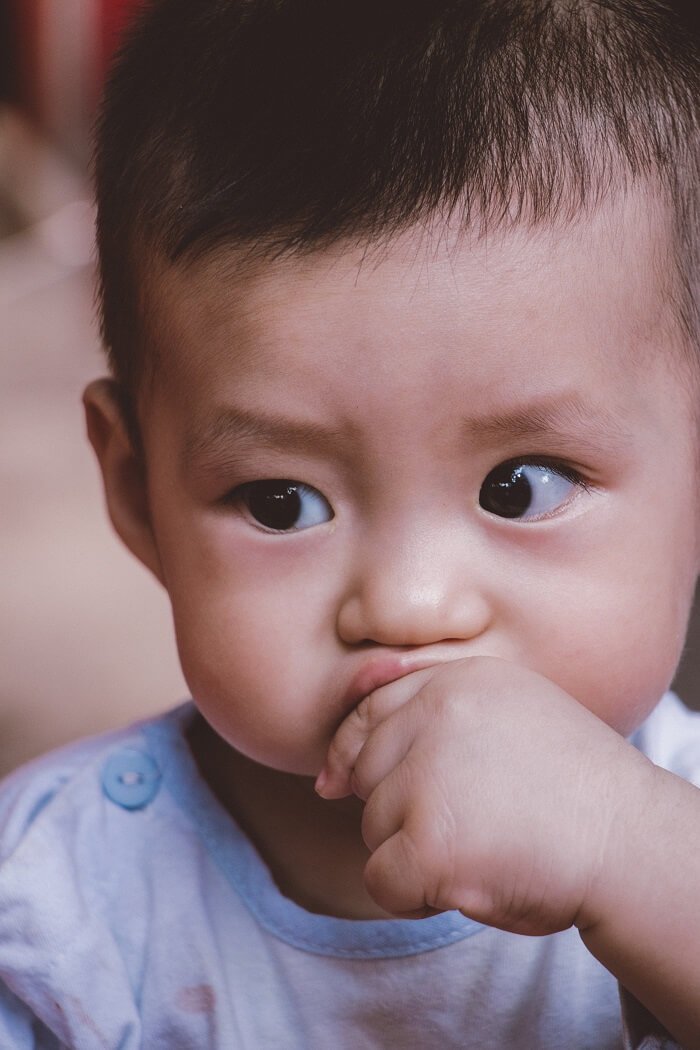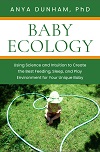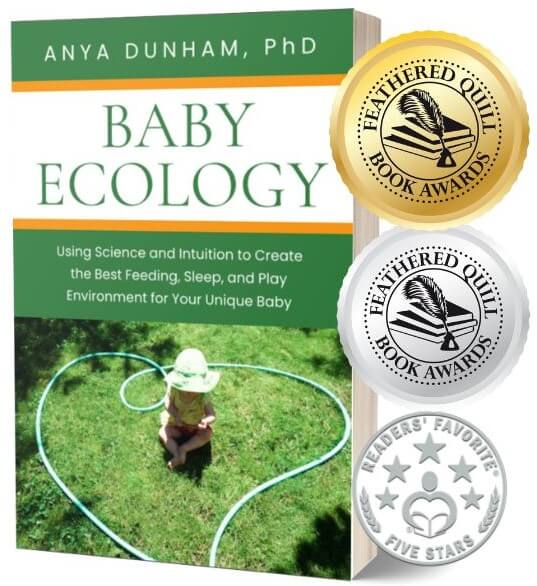Baby Ecology book is here! Learn more
Baby Ecology book is here!
- Home
- Baby activities
- Separation anxiety
Separation anxiety in babies is a good sign
by Anya Dunham, PhD
A perspective shift on separation anxiety in babies: not a problem to fix but a milestone to celebrate.

Babies meet many new people and have many new experiences during their first year. How they react partially depends on their temperaments. Outgoing babies tend to approach anything unfamiliar with curiosity, while more cautious, slower-to-warm-up babies tend to withdraw or hesitate at first. But regardless of temperament, most babies begin showing stranger anxiety (fear of strangers and unfamiliar events) and separation anxiety (reluctance to separate from their primary caregivers) sometime in the second half of their first year. We call it ‘anxiety’, but it’s actually a testament to your baby’s bond with you and a sign of immense learning and growing! Let’s take a closer look.
Why babies develop separation anxiety
Around 7-9 months, babies develop:1
- Focused attachment (“I know who brings me love, safety, and nourishment”)
- Understanding of object permanence (“That person with big glasses is still in the kitchen although I cannot see them”)
- Advanced ability to detect patterns and anticipate events (“Mommy has her coat on so she must be leaving”)
These cognitive leaps expand babies' world, but also make it appear more uncertain, so they might hold on to their safe base more tightly. Makes sense, right?
In addition, babies at this age are gaining, or are about to gain, mobility. Stranger and separation anxiety might serve as a safety net that keeps them closer to parents and trusted caregivers.
How you can help
Here is how you can help your baby navigate the unfamiliar:
- Tell your baby ahead of time about the new person he will soon be meeting (“My friend Katie is coming to see us after lunch”). Remember, babies begin to understand words early.
- Avoid labels when you talk to your baby or introduce him to someone (instead of saying “Oh, he’s just shy,” try “Aidan is learning to meet new people” or “Aidan needs extra time today”).
- Respect your baby’s cautiousness or fear, but don’t reinforce it (instead of “this vacuum is scary!” try “You look worried”).
- Make time for your baby to warm up to a new person or situation; don’t pass him to anyone to hold or hug before he is ready.
- When you’re about to leave your baby with a family member or a caregiver, don’t slip away quietly: tell your baby that you’re leaving, and that you’ll be back soon.
Stranger and separation anxiety usually lasts a few months, sometimes longer. These behaviours are developmentally appropriate and are a testament to your baby’s strong bond with you. Overcoming them requires cognitive and emotional development and repeated experiences.
Watching you interact with people will help your baby become more comfortable doing it herself. And having small, natural separations during the day (“I’m going to the kitchen; I’ll see you in a minute”) will gradually teach her that you always come back.
My baby clings to me during a class we attend. What should I do?
Your baby might be benefitting more from observing others or watching something else happening in the room. As Magda Gerber puts it in Your Self-Confident Baby,2 “for babies, being who they are is the curriculum.” Observe your baby’s signals to see when (and if) he’s ready to be brought into a structured activity. If it looks like your baby truly doesn’t want to either watch or participate, consider dropping the activity: “best baby activities” are not always what we think anyway.
Separation anxiety in babies: Bottom line
Separation anxiety, unwillingness to go into a relative’s arms, or difficulties at daycare drop off are all very, very normal. It's a sign that your baby (1) knows who brings them love, safety, and nourishment; (2) understands object permanence; and (3) is learning patterns and anticipating familiar events – all signs of tremendous learning and growing!
Separation anxiety in babies is challenging phase for parents and caregivers to navigate, no doubt about it. But despite being challenging, separation anxiety is a milestone worth celebrating – and not something you need to “fix”, work on, or apologize to anyone for ♡
Did you find this re-frame helpful? Come visit me on Instagram and let me know!
References
References
1. Kagan J (1997) Temperament and the reactions to unfamiliarity. Child Development 68(1): 139-143
2. Gerber M, Johnson A (1998) Your self-confident baby: how to encourage your child's natural abilities from the very start. John Wiley and Sons, New York, NY, USA
Using hundreds of scientific studies, Baby Ecology connects the dots to help you create the best environment for sleep, feeding, care, and play for your baby.
Warmly,
Anya


